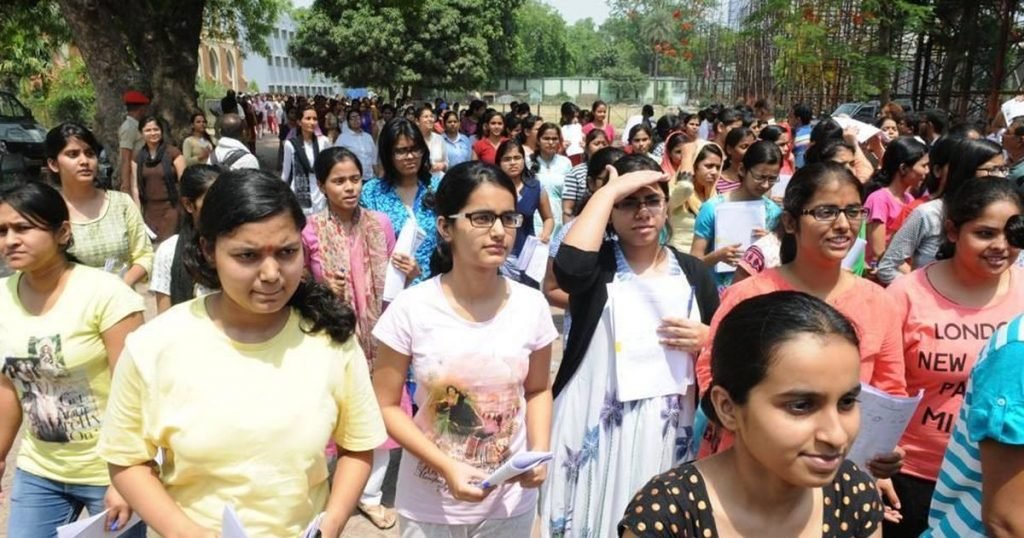Read in : தமிழ்
The proposed Higher Education Commission of India (HECI) is constituted in place of the University Grants Commission (UGC) will encroach upon the rights of the states, feel some educationists voicing their opposition to the move.
“Higher education was brought under the concurrent list through a Constitution amendment of 1976. But the present draft bill is a blatant attempt by the central government to take the states’ rights under its control. The centre is trying to bring the higher education completely under the central list, without any constitutional amendment” says professor M. Anandakrishnan, the former vice-chancellor of Anna university and ex-chief of IIT – Kanpur’s administrative council.
The centre has not spelled out why the UGC was ineffective, he says, adding that apart from financial authority, many of the functions of the UGC have been brought under the scope of the HECI. The draft bill grants unlimited authority to the proposed body.
“This draft bill paves the way for snatching the authority that the state governments are presently having in respect of starting of new universities” -Professor M. Anandakrishnan
“If one looks at the constitution of this commission and the number of its members, it will become obvious that there will be more number of officials than educationists in decision-making capacities. The role of the state governments in this Higher Education Commission hardly makes any sense. Representatives from State Higher Education Councils may get appointed as members to the Advisory council headed by the union HRD minister, but when there are differences of opinion on taking decisions in this body, the decision of the central government will remain final. This is an important point to be borne in mind”, he says.
He also points out that “this draft bill paves the way for snatching the authority that the state governments are presently having in respect of starting of new universities, and likewise, it empowers the commission to confer the degree-giving powers on both, universities and colleges. The guideline that the approval of the Higher Education Council has to be obtained before universities introduce new courses will curtail the independence of the universities’ board of studies.”
“It is not yet clear as to what sort of grants will be given by this body. It has been decided to mobilize funds of Rs 1 lakh crore from banks and other private agencies through the Higher Education Funding Agency. This will pave the way for private agencies interfering in the affairs of the university. This agency will help to provide loan assistance for the developmental activities of higher educational institutions. HRD ministry will pay the interest for that loan. When the responsibility for repayment of the loans in many installments rests with those educational institutions, how will they be able to make sufficient income for such a loan repayment? Also, can the state government educational institutions obtain these loans without the permission of the respective state governments?” asks Prof. Anandakrishnan.
“This draft bill blatantly violates the rights of the states granted under section 246 of the Indian constitution” -Prince Gajendra Babu
Even the Tamil Nadu government, which is maintaining cordial relationship with the centre, has registered its opposition to this move. “As per the draft bill published now, the financial authority will rest with Human Resources Development (HRD) ministry or with some other agency. This will change the 100% grant given now to 60% center-provided and 40% state-provided”, TN CM Edappadai Palaniswami has pointed out in his letter to the PM.
“Under the prevailing system, the centre cannot enact a law with clauses for regulating or closing down a university established by a state government under the state laws. But this draft bill blatantly violates the rights of the states granted under section 246 of the Indian constitution. This means that if this draft bill will come into force, a situation will arise when permission has to be obtained from this commission even for starting new universities”, Prince Gajendra Babu, secretary of the state platform for public schools has pointed out.
“Sections 19 & 20 of the draft bill making it mandatory for a university established through the state legislature to get the recognition of the Higher Education Commission. These two sections say that if the commission thinks that a certain university is not adhering to the recommended standards, it will withdraw the recognition granted. These signify naked encroachment into the states’ rights. There is no differentiation between government and private universities,” he continues. Pointing out that the University Grants Commission was a distinguished body that was established based on the recommendations of the Dr Radhakrishnan Committee, he stresses that it should only be strengthened, and not weakened or closed down.
Read in : தமிழ்
